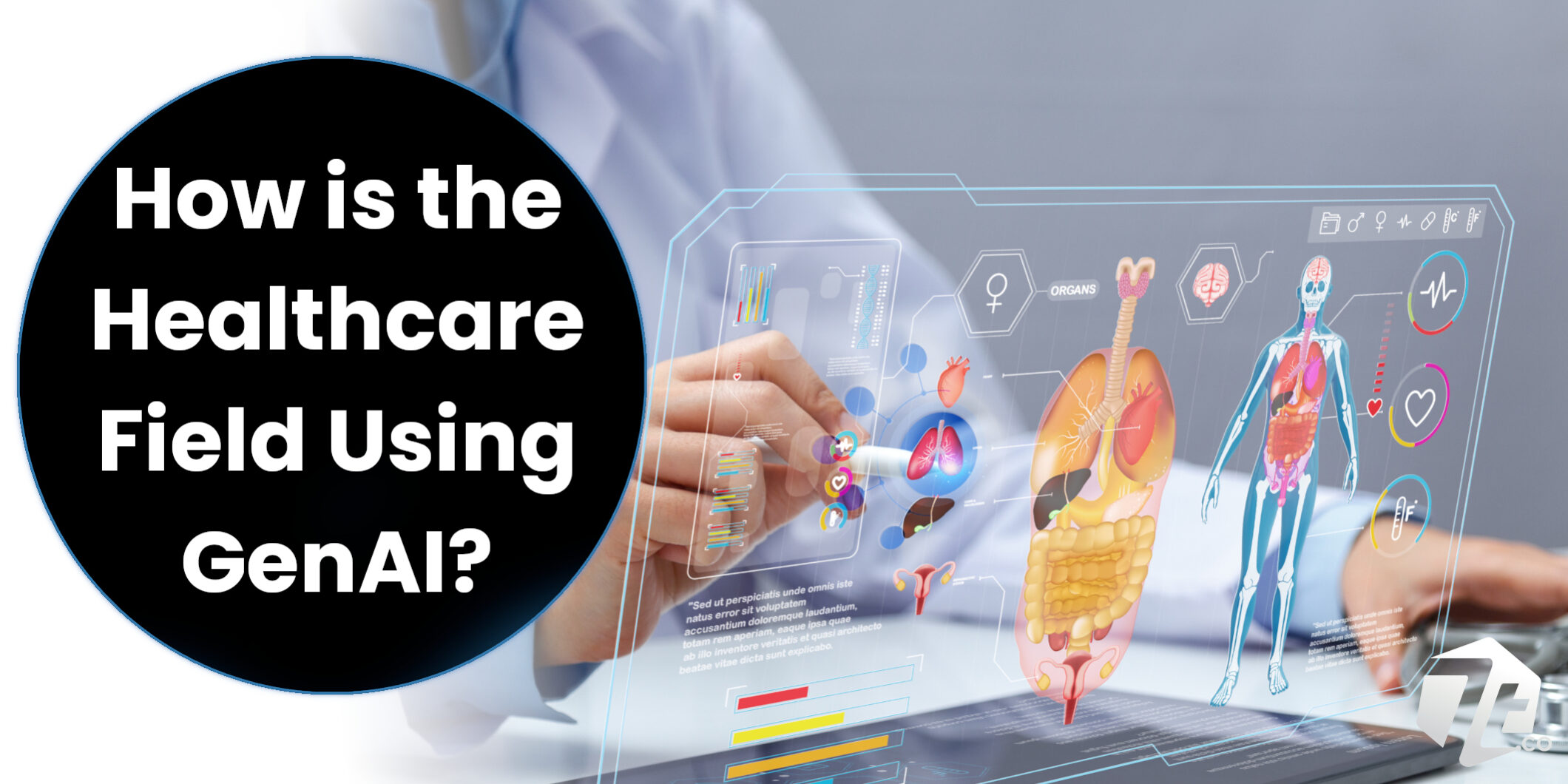Generative AI — also known as genAI — has developed a mixed reputation in the eyes of the public. While the term describes any AI tool that is capable of ingesting information and generating unique content on its own, popular tools such as ChatGPT and DALL-E have divided users due to their experimental nature. Highly variable applications and exceptionally large databases have resulted in public concerns about GenAI’s accuracy and reliability.
While some level of concern is reasonable, less experimental applications of generative AI often use much smaller databases, allowing them to generate content and simple responses to queries that are far more consistent and accurate. Firms using generative AI for healthcare have been at the forefront, resulting in smaller use cases and leveraging GenAI to streamline back-office operations, ensure continuity of care and much more.
In this article, we’ll explore use cases of GenAI in healthcare, as well as the best strategy for leveraging this new technology in a reliable, cost-effective way that complies with all relevant regulations.
Potential Applications of Generative AI for Healthcare
The healthcare industry presents several potential applications for GenAI, but they differ according to the type of firm using the technology. Obviously, a hospital will have different requirements for software tools than a medtech firm, so we have broken down the following use cases by the types of tasks to which they best apply.
How is GenAI Used in Healthcare?
Industry
Applications of GenAI
Hospitals / Other Clinical Practices
- Pharmacy and patient data management
- Waste disposal management
- Sanitary patient consent forms
Medtech / Pharmaceutical Manufacturers
- Inventory management
- Data capture and report generation
- Billing and logistics management
Health Insurance Providers / Billing and Payment Departments
- Customer relations management (CRM)
- Automated 24/7 customer support
- Self-service claims management
- Billing and payments management
Deployment Strategy for GenAI in Healthcare
The best way to get a generative AI tool that meets your organization’s specific needs, complies with all relevant regulations and has the ability to scale with your operations is to work with a custom software developer that specializes in AI. Ideally, this partner should be experienced in the healthcare industry. They should also be familiar with the regulations that may apply to your organization, such as HIPAA, ACA, etc.
A quality custom software developer will start by examining your operations, identifying your pain points and determining your goals for your software platform or application. Then, they will get started on creating bespoke, purpose-built tools specifically for your business to ensure that every aspect of your generative AI program is optimized for your use case.
GenAI in Healthcare Case Study: MPOWERHealth
It is important to see examples of GenAI’s use in healthcare to understand its benefits and the more specific benefits of partnering with an experienced custom software developer that has worked with clients in the healthcare industry. We created an innovative AI application for our client, MPOWERHealth, which makes software for clinical practices.
As a healthcare software provider, MPOWERHealth provides data-driven solutions to healthcare providers of all types. The digital transformation goal in this business case was to improve efficiency and quality of care in the operating room (OR).
A failure to adopt data-driven tools made the required administrative work cumbersome and prevented ORs from easily integrating with software from other medical practices. The awkward admin workload also decreased OR efficacy in managing consent and proper waste disposal.
To ensure MPOWERHealth could provide the best possible solutions for client ORs, 7T created an enterprise medical mobile app for iPads (commonly used in OR settings) designed to improve OR efficiency with data metrics access, backed software integrations, and simpler, more sterile administrative solutions.
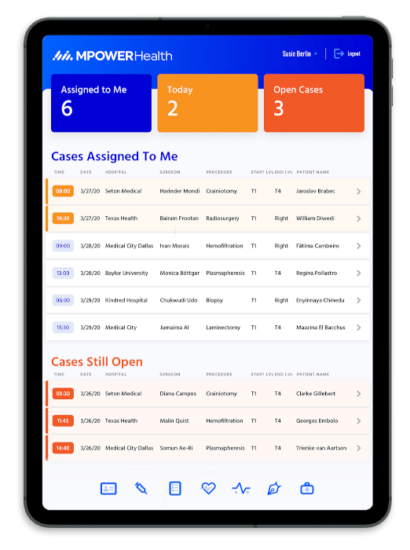
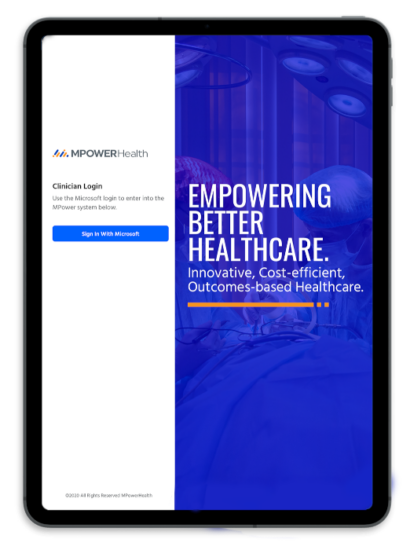
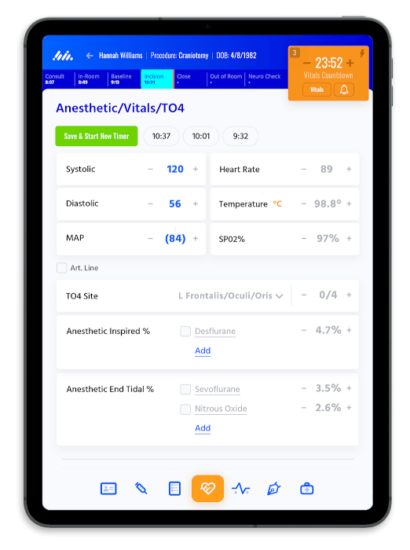
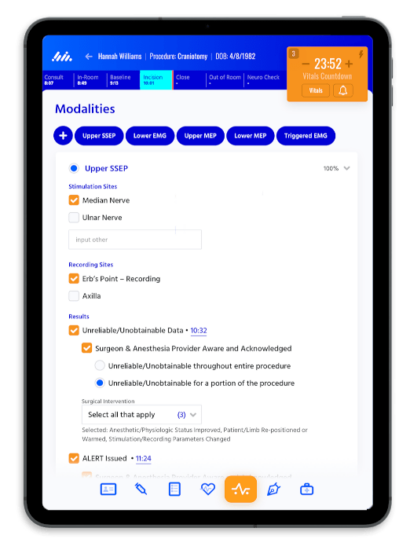
MPOWERHealth Medical Mobile App Capabilities
Feature / Functionality
Details
Data On-Demand
- Displays patient data metrics in a simple, at-a-glance format.
- An assignment board offers clinicians quick access to view assigned tasks.
- In hectic OR environments, a convenient timer function delivers essential reminders, like notifying clinicians when it’s time to take patient vitals.
Easy Integrations
- The platform includes SSO integration for easy, rapid sign-on.
- USMon and other back-end application integrations improve efficiency by sharing relevant data and communications on multiple platforms.
Simple, Sterile Solutions
- The surgeon eSignature sign-off feature offers a sterile alternative to keeping pens and paper in the OR.
- The sharps count prompts ensure patient safety by providing medical staff with a tool to verify that no pointy metal objects are accidentally left behind.
Results
By providing solutions to common OR pain points, this platform helped MPOWERHealth deliver the value their clients have come to expect. The features that were included in this medical mobile app streamlined the following tasks.
-
-
- The app generates a detailed log of all activities and data arising from OR monitoring procedures.
- The platform eliminates the need for pen and paper in the OR, delivering a more sterile solution.
- Checklists and prompts ensure that all tasks are correctly performed during medical procedures.
- An easy-to-use interface offers clinician prompts and reminders so nothing is forgotten or overlooked in busy ORs and other hectic healthcare environments.
- The surgeon sign-off feature allows clinicians to officially sign off on procedures after their time in the OR.
- A backend integration feature imports and pre-populates data from USMon, freeing clinicians to focus on their patients.
- Comprehensive data privacy controls allow for full HIPAA compliance.
-
Digital Transformations in the healthcare industry, offer safer, more efficient and more transparent processes.
Leverage Generative AI for Healthcare with 7T
At 7T, we use a problem → solution approach to generative AI for healthcare clients. Through our custom-built platforms, machine learning and AI technology can provide a significant operational advantage with a robust ROI. Our team will identify your organization’s challenges and pain points. Then, we’ll architect a value-generating solution to transform your vital business processes and meet your goals.
7T is based in Dallas, with additional locations in Houston, and Charlotte, NC. But our clientele spans the globe. If you’re ready to learn more about leveraging generative AI for your organization within the healthcare field and beyond, contact 7T today.

